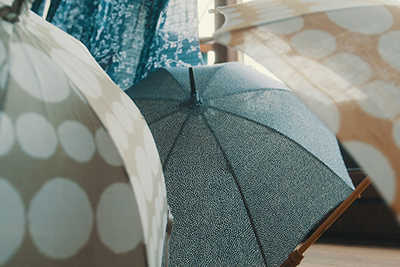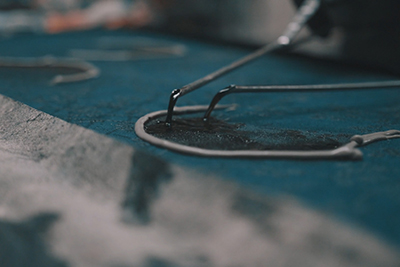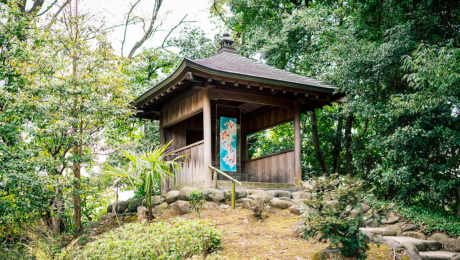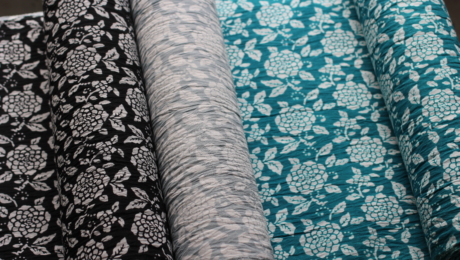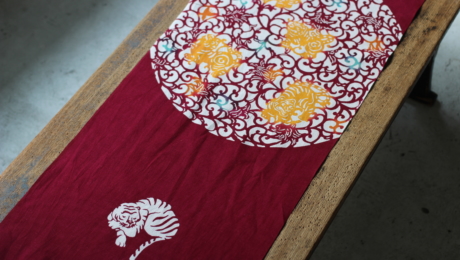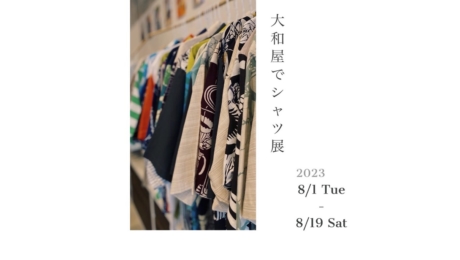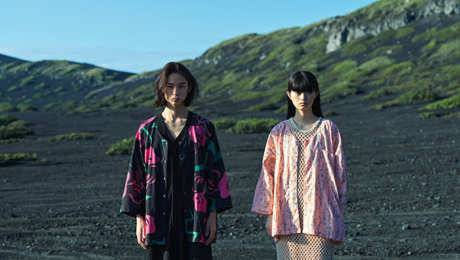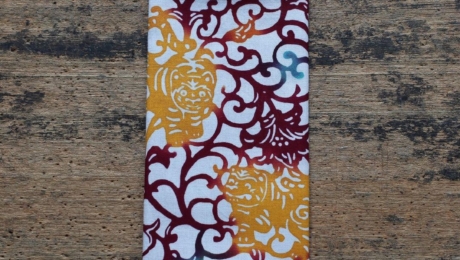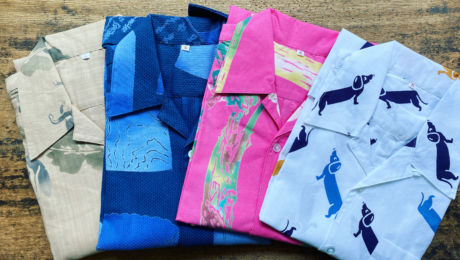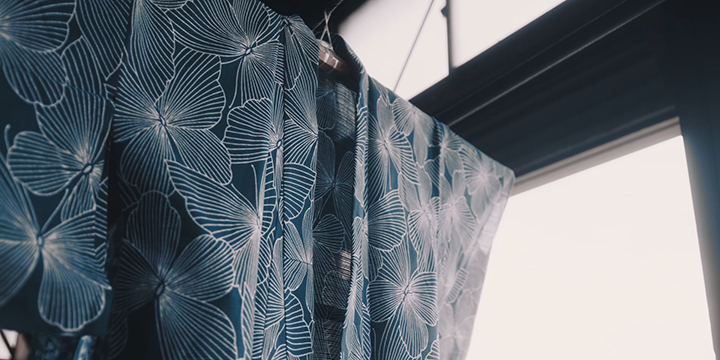
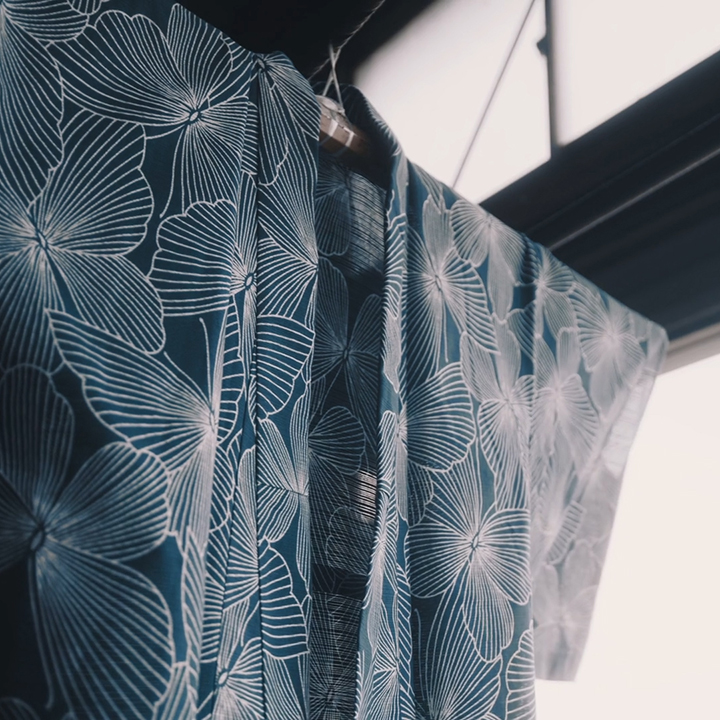
Stencil dyeing of the Meiji era under the brand name Shin Edo Zome.
Yukata summer kimonos and tenugui towels dyed in brightly colored patterns are goods that came to make a regular appearance in daily life during the Meiji period (1866-1912). A wide variety of fabrics appeared on the market due to the birth a stencil dyeing technique unique to Japan: chusen. Founded in Nihonbashi in 1899, Marukyu Shoten is a wholesaler that even today stocks a wide range of the chusen textile products that were loved by the people of Edo.
The chusen dyeing process begins with a paper pattern that is used to apply a dye-resistant paste known as resist onto a bolt of cloth. Pigment will not soak into areas covered in the resist, which means they will be left uncolored. When this step is complete, the pattern is removed, and the fabric is folded to reveal a fresh section on top. The pattern is positioned on this new section of cloth, and the resist is applied once again. This process is repeated until some 20 to 40 layers of fabric are created. Resist is then applied to create dams which separate areas where a different color is desired. Next, using a yakan, which looks rather like a watering can, pigment is poured into the areas enclosed by the dams in accordance with the design. A vacuum pump that works from below the fabric is used to suck the dye through all the layers at once. The fabric is turned over and the same process is repeated working on the other side. This is what gives chusen textiles their characteristic distinctly dyed finish with no right or wrong side.
When it came into being, chusen dyeing was a revolutionary new technique that enabled mass production for the very first time. However, unlike the machine-based mass-production of printed goods we have these days, all the processes in chusen dyeing are done manually by craftsmen. Individual items have their own character, creating the appealing depth of personality that is unique to handiwork. The ability to create fine shading and bleeding is also something that can only be achieved through skilled craftsmanship.
Valuing such traditional techniques, Marukyu Shoten designs and sells a range of products including yukata and tenugui under the name Shin Edo Zome. Designing new patterns while also reprinting designs from the huge number of paper patterns that have been produced thus far, Marukyu Shoten brings us products that fit with contemporary life while also offering nostalgia. Working in collaboration with dyeing artisans, weavers, and dyeing workshops, it is committed to continuing to manufacture products that convey this culture of chusen dyeing.
